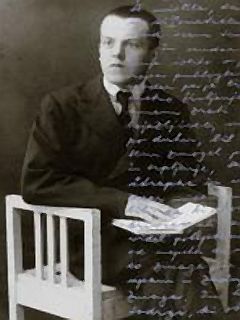
Klement Jug was not a particularly prolific writer, yet his impact on both the culture and the politics in Slovenia is indelible. He died at the height of his influence while attempting a quintessentially Slovenian feat.
Jug, born in the western Slovenian town of Solkan in 1898, was interested in philosophy from a young age. Over the years, he developed his own philosophical worldview, one that stressed free will and personal responsibility. His professors at the University of Ljubljana were impressed by the depth of his philosophical thought; they predicted that Jug would become a leading philosopher. His ideas, which had a strong psychological component and were eventually dubbed “analytic inductive psychology,” were novel, but they fit in well with the changes happening in the Slovenian Lands after World War II.
Jug’s ideas – both philosophical and political -- took Slovenia’s intellectual community, particularly the younger generations, by storm. At the time, parts of western Slovenia, including his native Solkan, found themselves under Italian occupation, and the political situation left many young people there in a dilemma about how to respond. Jug stressed the importance of cultural and political resistance – an approach that would eventually create the first anti-Fascist movement in Europe.
His philosophical positions also influenced a generation of young Slovenian writers. Among his admirers was Vladimir Bartol, who is now considered one of the leading figures of 20th century Slovenian literature. He devoted several chapters of his book Al Araf to Jug.
But it was his love for the mountains that defined much of Jug’s life. He connected mountaineering with his philosophical emphasis on self-reliance. After World War I, he emerged as a leading promotor of hiking and mountaineering; he was one of the first people to use metal nuts to climb challenging rock faces. He also wrote about his mountaineering adventures.
On a fine August day in 1824, just a year after he had received his PhD, Jug was doing what many would come to consider as a patriotic duty of every Slovenian: climbing Mount Triglav. He decided to ascend the mountain via its challenging North Face, by he slipped and fell to his death. He was just 25 years old. The part of the North Face where he fell is now known as Jug’s Column in his honor.


































































